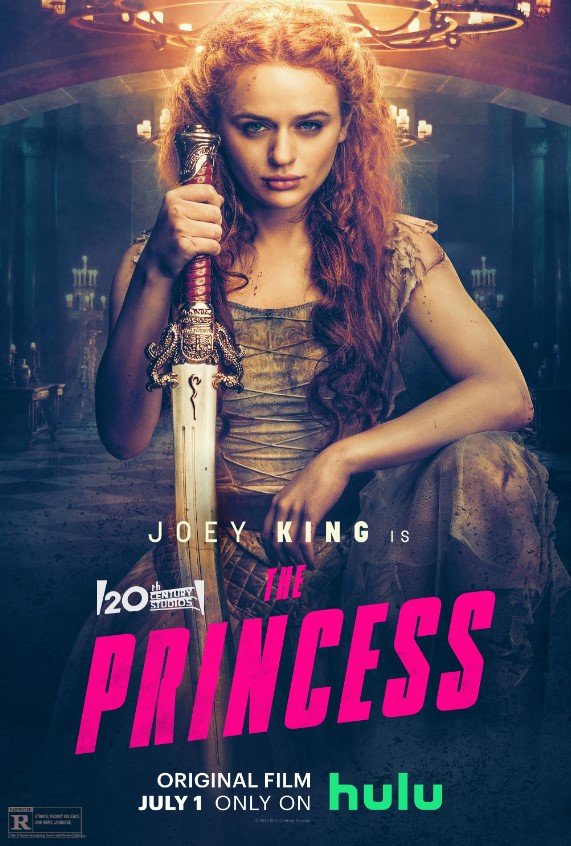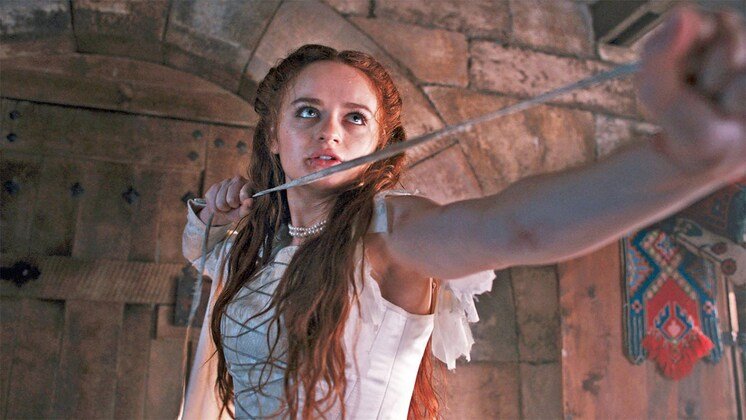The Princess Story:-
In a recent interview featured on Screen Rant, screenwriters Ben Lustig and Jake Thornton delved into the genesis of their latest project, The Princess. Their conversation revealed a desire to disrupt the typical narrative tropes surrounding princess characters, aiming to craft a story where a princess challenges societal expectations. Lustig, especially enthusiastic about this concept, articulated his vision by asking, “What if one [princess] was a badass?” This statement implied a departure from the conventional portrayal of princesses found in popular culture, suggesting that characters like Mulan, Jasmine, Pocahontas, Tiana, and Merida might not be considered tough or outspoken enough by comparison.

Movie Ratings
| Release Date | 2 July 2022 |
| Language | English |
| Genre | Action, Drama, Fantasy |
| Cast | Joey King, Dominic Cooper, Olga Kurylenko, Veronica Ng |
| Director | Le-Van Kiet |
| Writer | Ben Lustig, Jake Thornton |
| Cinematography | Lorenzo Senatore |
| Music | Natalie Holt |
| Producer | Toby Jaffe, Derek Kolstad, Neal H. Moritz |
| Production | 20th Century Studios, Original Film |
| Certificate | 16+ |
Directed by Le-Van Kiet and scripted by Lustig and Thornton, The Princess reflects a broader societal trend concerning the empowerment of young women. However, the film’s portrayal of badassery seems to equate it primarily with acts of vengeance and a reassertion of traditional power structures, albeit with a woman in a leadership role. While the film briefly touches on other virtues such as intelligence and ethics, these themes are overshadowed by its focus on violent confrontations.

Despite its potential, The Princess falls short in its execution. While Joey King delivers a compelling performance as the protagonist trapped in a tower, the narrative relies heavily on action sequences rather than exploring its deeper thematic elements. Set within the confines of a single day and location, the film’s compressed timeframe and action-packed scenes cater to viewers seeking excitement.
However, the plot lacks nuance. As the Princess navigates through the tower, which has been seized by her rejected suitor Julius, the story delves into themes of entitlement and male aggression. Her race against time to save her family and kingdom adds urgency to the narrative, yet the execution feels formulaic.
Flashbacks provide insight into the Princess’s upbringing, revealing her unconventional training in sword fighting alongside traditional etiquette lessons. These memories, imparted by her mentor Linh, serve to strengthen her resolve in the face of adversity.
Despite its attempts at empowerment, The Princess ultimately falls into the trap of superficial progressivism. While it may be celebrated for its ostensibly radical premise, the film reinforces harmful stereotypes about gender and power dynamics. The entertainment industry’s eagerness to capitalize on feminist themes often results in shallow representations that fail to challenge entrenched norms.
